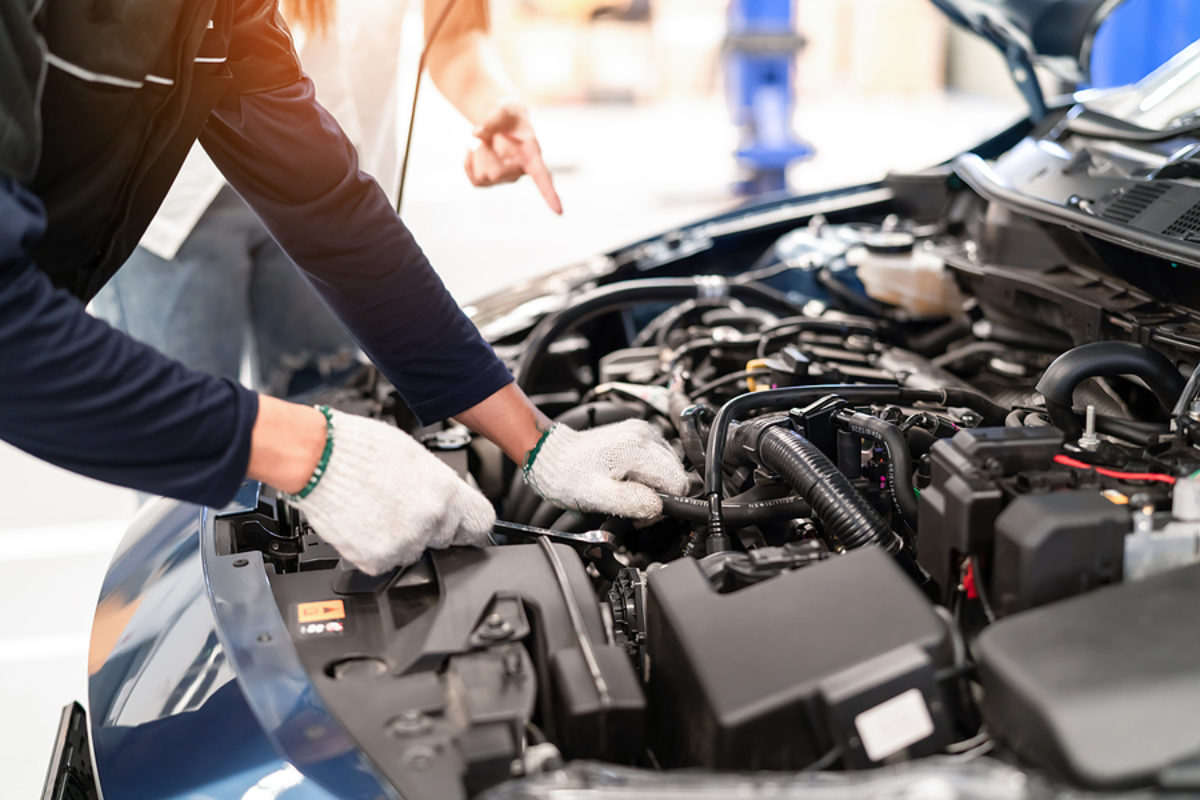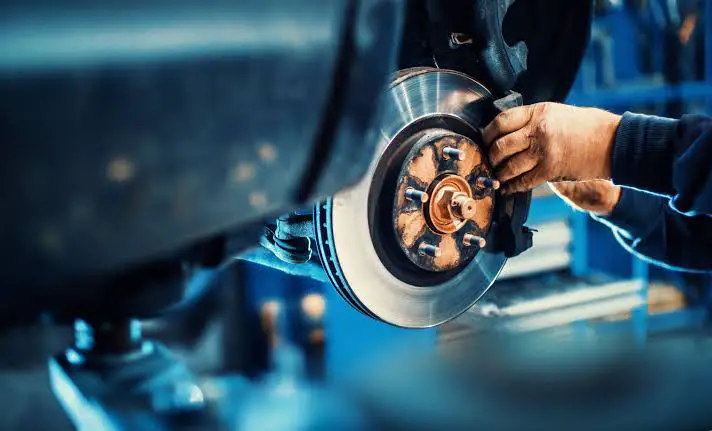Is it true or not that you are hearing a bizarre squeaking commotion when you turn your vehicle at low paces? Provided that this is true squeaking noise when turning at low speeds, there are a couple of potential causes that you ought to recognize and do whatever it takes to fix.
The most probable offender is your vehicle’s power guiding framework. The power directing belt might be worn and should be supplanted, or the siphon might require some grease. Furthermore squeaking noise from wheel when driving, you might have to top up or change the power controlling liquid. Assuming none of these arrangements fix the squeaking clamor, there may likewise be an issue with the directing rack or suspension.
The greater part of these issues can be helped reasonably effectively whenever got adequately early. We should take a gander at probably the most widely recognized reasons for this issue and how to fix them.
Low Power Guiding Liquid
One potential reason for the squeaking commotion while turning at low velocities is that the power controlling liquid has dropped excessively low. By using water driven pressure, the power guiding framework considers easy turning of the wheels when you turn your controlling wheel. The commotion will happen as you turn in the event that there isn’t sufficient liquid.
Check your power controlling liquid levels and top up if important to fix this issue. You might have to flush out the framework in the event that it’s actually occurring in the wake of garnish up the liquid.
Bombing Power Directing Framework
One more expected reason for squeaking commotions while turning at low paces is a faltering power guiding framework. After some time, parts inside the framework can break down or separate, prompting a wasteful activity and a noisy screeching sound as you turn.

You ought to have your specialist review and fix any defective parts to fix this issue. On the off chance that the power guiding framework is hopeless, you might have to supplant the entire thing.
Terrible CV Joint
A terrible CV joint could likewise be answerable for making a squeaking clamor while turning at low velocities. A CV joint is an indispensable piece of your vehicle’s suspension framework that interfaces two pivoting parts to move freely without restricting up.
In the event that these joints become broken down or harmed, they will not have the option to pivot unreservedly, prompting an uproarious screeching sound as you turn the wheel. You ought to investigate and supplant the CV joint to fix this issue.
Defective Guiding Wheel Section
One more expected reason for this issue could be a flawed guiding wheel section. The section helps support the controlling haggle it to move unreservedly when you turn it left or right. Assuming there are any free parts in the segment or on the other hand in the event that it has become twisted or distorted over the long run, it could prompt an expanded measure of play in the wheel, which could bring about an aggravating squeaking sound while turning at low rates.
For this situation, you ought to investigate and supplant the directing wheel segment to tackle this issue. It’s vital to figure this out quickly to guarantee the wellbeing of your vehicle.
Suspension Issues
One more typical reason for squeaking clamors while turning at low paces is suspension issues. Because of customary use, suspension parts, for example, control arms, bushings, or rotating conjunctures might become exhausted after some time. As these parts begin to wear out, they will squeak when metal rubs against metal during turns or different moves that include the suspension framework.
To fix this issue, you ought to have your vehicle examined by a certified repairman who can distinguish and supplant broken down parts in your suspension framework.
Understanding Squeaking Noises when Turning at Low Speeds

Causes of Squeaking Noises during Low-Speed Turns
Squeaking noises while turning at low speeds can be attributed to various factors. The most common cause is friction between different components of the steering and suspension systems. This friction occurs due to worn-out or dry components that lack proper lubrication.
Common Culprits for Squeaking Noises
Several components can contribute to the occurrence of squeaking noises during low-speed turns. Some common culprits include worn-out ball joints, bushings, tie rod ends, steering rack mounts, or strut mounts. Identifying the specific source of the squeak is essential for implementing the correct solution.
Checking the Power Steering System
Start by inspecting the power steering system, squeaking noise when turning at low speeds as it plays a significant role in turning your vehicle smoothly. Check the power steering fluid level and condition. Low fluid levels or dirty fluid can cause squeaking noise from engine when idle. Ensure the power steering belt is in good condition and properly tensioned.
Inspecting the Suspension Components
Next, examine the suspension components. Look for any signs of wear or damage in ball joints, bushings, tie rod ends, and strut mounts. Pay close attention to rubber bushings, as they can dry out over time, leading to squeaking sounds during turns.
Lubricating the Steering Components
One of the easiest solutions to address squeaking noises is to lubricate the steering components. Apply a suitable lubricant to the ball joints, bushings, squeaking noise when turning at low speeds and tie rod ends. Use a silicone-based or lithium-based grease to ensure smooth movement and reduce friction. Remember to follow the manufacturer’s recommendations for lubrication.
Replacing Worn-out Suspension Parts

If lubrication does not eliminate the squeaking noise, it may be necessary to replace worn-out suspension components. Consult a professional mechanic who can inspect and identify the specific parts requiring replacement. New ball joints, bushings, or tie rod ends can restore proper functionality and silence the squeaks.
Free Outside Trim
One more conceivable reason for squeaking commotions while turning at low velocities is free outside trim pieces on your vehicle. Trim pieces, for example, entryway boards or bumpers can make a squeak while turning at slow paces because of additional development between these pieces as you cruise all over corners or bends. These trim pieces can work themselves free over the long haul because of vibrations from ordinary driving circumstances, shaking around and making commotion at whatever point the vehicle turns.
To cure this issue, check all trim pieces on your vehicle for anything that looks free or has come unraveled from its place, and ensure they are appropriately gotten prior to driving once more. Assess all outside trim pieces routinely, straightening out whatever might have come free over the long run.
Tire Tension
Tire tension can likewise influence how easily your vehicle turns at lower speeds. Guarantee tires are swelled appropriately as indicated by producer particulars prior to taking off on a drive. This guarantees ideal execution from every one of the four tires, diminishing vibration and keeping extreme erosion from happening – the two of which can make disturbing sounds while cornering gradually.
Assuming that your tire pressure is excessively low or excessively high squeaking noise when turning at low speeds , change it in like manner and check it again when the vehicle is cold for the most reliable perusing.
FAQs
Q: Can I use any type of lubricant for the steering components?
A: It’s recommended to use silicone-based or lithium-based grease for lubricating steering components, as they provide long-lasting lubrication and reduce friction effectively.
Q: How often should I have my suspension and steering system inspected?
A: It’s advisable to have your suspension and steering system inspected at least once a year or as recommended by your vehicle’s manufacturer.
Q: Is wheel alignment essential for preventing squeaking noises?
A: Yes, proper wheel alignment plays a crucial role in reducing stress on suspension components, which can help prevent squeaking noises during turns.
Q: Why do squeaking noises often occur at low speeds?
A: Squeaking noises during low-speed turns are more noticeable because there is less ambient noise, allowing you to hear the squeaks more clearly.
Q: What should I do if lubrication doesn’t resolve the squeaking noise?
A: If lubrication doesn’t eliminate the squeaking noise, it’s advisable to consult a professional mechanic who can inspect and identify the specific components that require replacement or further attention.

